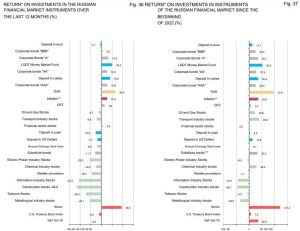BTC, ETH, or any other cryptocurrency that is generated by computer code is not classified as securities by a Belgian regulatory body.
Belgian Regulator Addresses Concerns
Belgium’s Financial Services and Markets Authority (FSMA) released a report on November 22, which addressed the question – are cryptos securities? According to the regulatory body, since Bitcoin, Ether, and other cryptocurrencies are issued solely by computer code, they are not considered securities.
An excerpt from the report reads,
“If there is no issuer, as in cases where instruments are created by a computer code and this is not done in execution of an agreement between issuer and investor (for example, Bitcoin or Ether), then in principle the Prospectus Regulation, the Prospectus Law and the MiFID rules of conduct do not apply.”
There have been increasing questions regarding where digital assets fall under the country’s existing financial laws and regulations. The above-mentioned report clarified in response to these increasing queries about the classification of cryptocurrencies under Belgian law.
FSMA’s Stepwise Plan
The FSMA has also stated that it will be including cryptocurrencies as a security under its “stepwise plan” if it was issued by an individual or entity. However, the stepwise plan will not be affected by the technology behind such assets. Simply put, it will not matter if the digital assets are existing or are being facilitated on a blockchain or through other traditional means. The European Parliament’s Markets in Crypto Assets Regulation (MiCA) will be adopted across the continent around the start of 2024. Till then, the regulatory framework for this asset will be provided by the stepwise plan chartered by the FSMA report.
Furthermore, even if the cryptocurrencies are not categorized as securities, they will be subjected to other regulations if they are being used as an exchange medium.
“Nevertheless, if the instruments have a payment or exchange function, other regulations may apply to the instruments or the persons who provide certain services relating to those instruments.”
FSMA And SEC – Two Different Approaches
The report from the regulatory body further states that transferable instruments with an issuer need to provide detailed information to potential investors. In such cases, the EU’s Markets in Financial Instruments Directive law or MiFID will come into action to prevent conflicts of interest. But since cryptos like Bitcoin do not have any particular issuer, the law does not apply to them. This clear-cut attitude towards crypto is in stark contrast to the perspective adopted by the FSMA’s American counterpart. The U.S. Securities and Exchanges Commission (SEC) has held a very “regulation by enforcement” approach toward digital assets and has also dragged crypto companies to the court over claims that cryptos should be registered as securities.
Disclaimer: This article is provided for informational purposes only. It is not offered or intended to be used as legal, tax, investment, financial, or other advice.





















